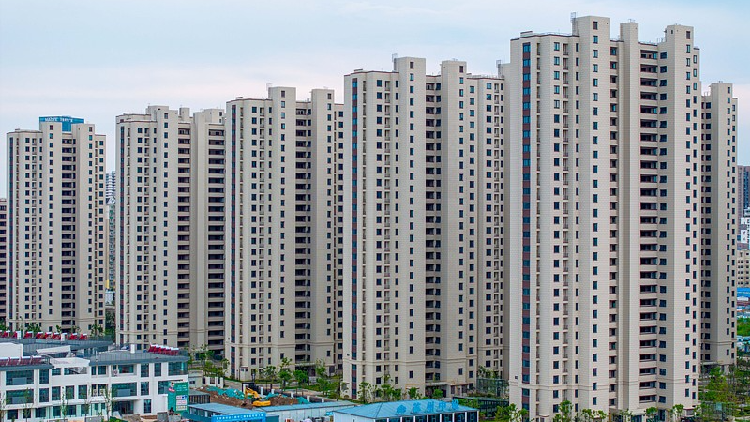Major Points from CPC Leadership Meeting on Economic Policies
Xi Jinping, general secretary of the Communist Party of China (CPC) Central Committee, led a meeting of the Political Bureau of the CPC Central Committee on Thursday. During this meeting, participants analyzed and discussed the current economic situation in China and made additional plans for economic initiatives.

While the fundamentals of the Chinese economy—such as a vast market, robust economic resilience, and significant potential—remain intact, the meeting acknowledged the emergence of "new situations and problems" within the current economic landscape.
"It is necessary to take a comprehensive, objective and calm view of the current economic situation, face the difficulties squarely and remain confident," stated the meeting.
The discussion emphasized that China must effectively implement existing policies, intensify efforts to introduce new incremental policies, and make policy measures more targeted and effective. The aim is to achieve the targets and tasks set for this year's economic and social development.
This meeting marks the first time a session of the Political Bureau has focused on economic work in September, underscoring the Chinese leadership's commitment to stabilizing growth and managing expectations, as highlighted by an analysis report from Founder Securities shortly after the meeting.
Key takeaways from the meeting include:
**Fiscal and Monetary Policies**
The Political Bureau meeting stressed the need for enhanced counter-cyclical adjustments in fiscal and monetary policies. It called for the issuance and effective use of ultra-long special treasury bonds and local government special-purpose bonds to leverage government investment and to lower the reserve requirement ratio, along with implementing impactful interest rate cuts.
China's central bank, the People's Bank of China (PBOC), announced a set of monetary easing measures on Tuesday that exceeded market expectations. PBOC Governor Pan Gongsheng indicated that China would soon cut the reserve requirement ratio (RRR) by 0.5 percentage points, injecting around 1 trillion yuan in long-term liquidity into the financial market. Depending on market liquidity, another RRR reduction of 0.25 to 0.5 percentage points may follow within the year, potentially freeing up to 2 trillion yuan in liquidity and helping reduce banks' liability costs by about 8 billion yuan.
Additionally, the PBOC will lower the interest rate on seven-day reverse repos from 1.7 percent to 1.5 percent, aimed at guiding the loan prime rate and deposit rates downward, while maintaining stability in the net interest margins of commercial banks.
**Property Market**
The Political Bureau also committed to taking further steps to stabilize the property market and counteract its downturn. Data from the National Bureau of Statistics indicated that large and medium-sized cities in China experienced month-on-month declines in both new and second-hand home prices in August.
The meeting called for stricter regulation of commercial housing construction increases, optimizing existing inventory, and improving quality. There was a focus on boosting lending for "whitelist" projects and revitalizing unused land. Li Yunze, head of the National Financial Regulatory Administration, mentioned that commercial banks have approved over 5,700 "whitelist" projects, amounting to 1.43 trillion yuan in financing, which supports the on-time delivery of over 4 million housing units.
Further, the meeting emphasized the importance of addressing public concerns by adjusting housing purchase restrictions, lowering interest rates on existing mortgage loans, and enhancing policies related to land, fiscal measures, taxes, and finance. The PBOC announced plans to reduce mortgage rates for existing home loans to match those of new housing loans, with expected average reductions of around 0.5 percentage points. "The new policy, which is conducive to further reducing borrowers' mortgage interest expenses, is expected to benefit 50 million households, or a population of 150 million," according to Pan.
The minimum down payment ratio for both first and second homes will be standardized, reducing the nationwide minimum down payment ratio for second homes from 25 percent to 15 percent.
**Capital Market**
The meeting also called for initiatives to enhance the capital market, encouraging medium- and long-term funds to enter this sector and clearing obstacles for social security, insurance, and wealth management funds. It offered support for the mergers, acquisitions, and restructuring of listed firms, while also urging progress on the reform of publicly offered funds and the introduction of policy measures to protect small and medium-sized investors.
China's central bank, the top securities regulator, and the financial regulator have unveiled a series of monetary stimulus measures, property market support, and capital market enhancements aimed at promoting high-quality economic development.
Efforts will be made to create an environment conducive to long-term investments, boost the quality of publicly listed companies, expand public equity funds, and support the stable development of private equity investment funds. The goal includes increasing the scale and proportion of medium- and long-term capital investments and fostering a more balanced structure among market investors.
**Private Economy, Employment, Elderly Care, and Childcare**
The meeting highlighted the need to promote a private economy law and create a favorable environment for the non-public sector. Steps will be taken to raise incomes for middle- and low-income groups and enhance consumption structures.
Additionally, the meeting advocated for the development of industries related to elderly care and childcare, along with reforms to pro-childbirth policies. It urged advancements in foreign capital market access for the manufacturing sector and the optimization of a business environment that is market-oriented, law-based, and internationalized.
Employment support for key demographics, such as recent college graduates, rural migrant workers, and those recently lifted out of poverty, was also emphasized. The meeting pledged to increase assistance for those struggling to find jobs, including the elderly, persons with disabilities, and the long-term unemployed, while providing additional support for low-income populations.
Chinese authorities introduced a guideline on Wednesday aimed at promoting high-quality and sufficient employment through the implementation of an employment-first strategy, focusing on creating more high-quality jobs by transforming and upgrading traditional industries, developing emerging sectors, and accelerating advanced manufacturing cluster development.
Debra A Smith for TROIB News
Find more stories on Business, Economy and Finance in TROIB business












